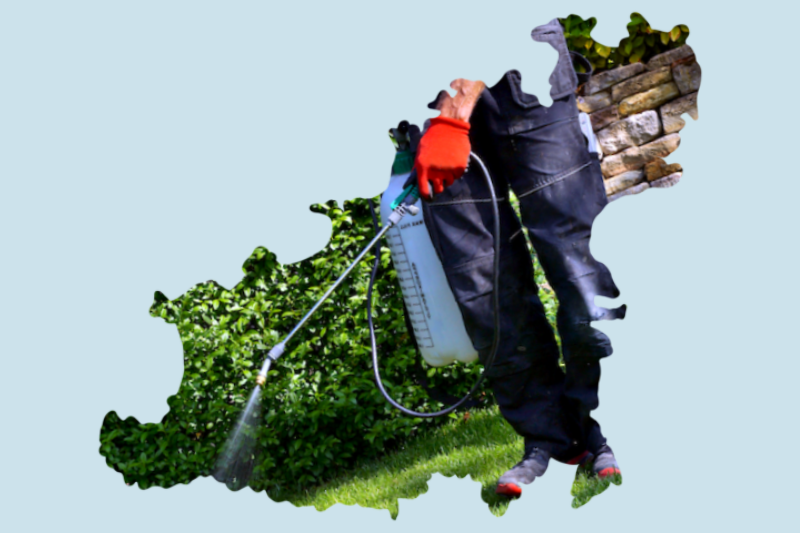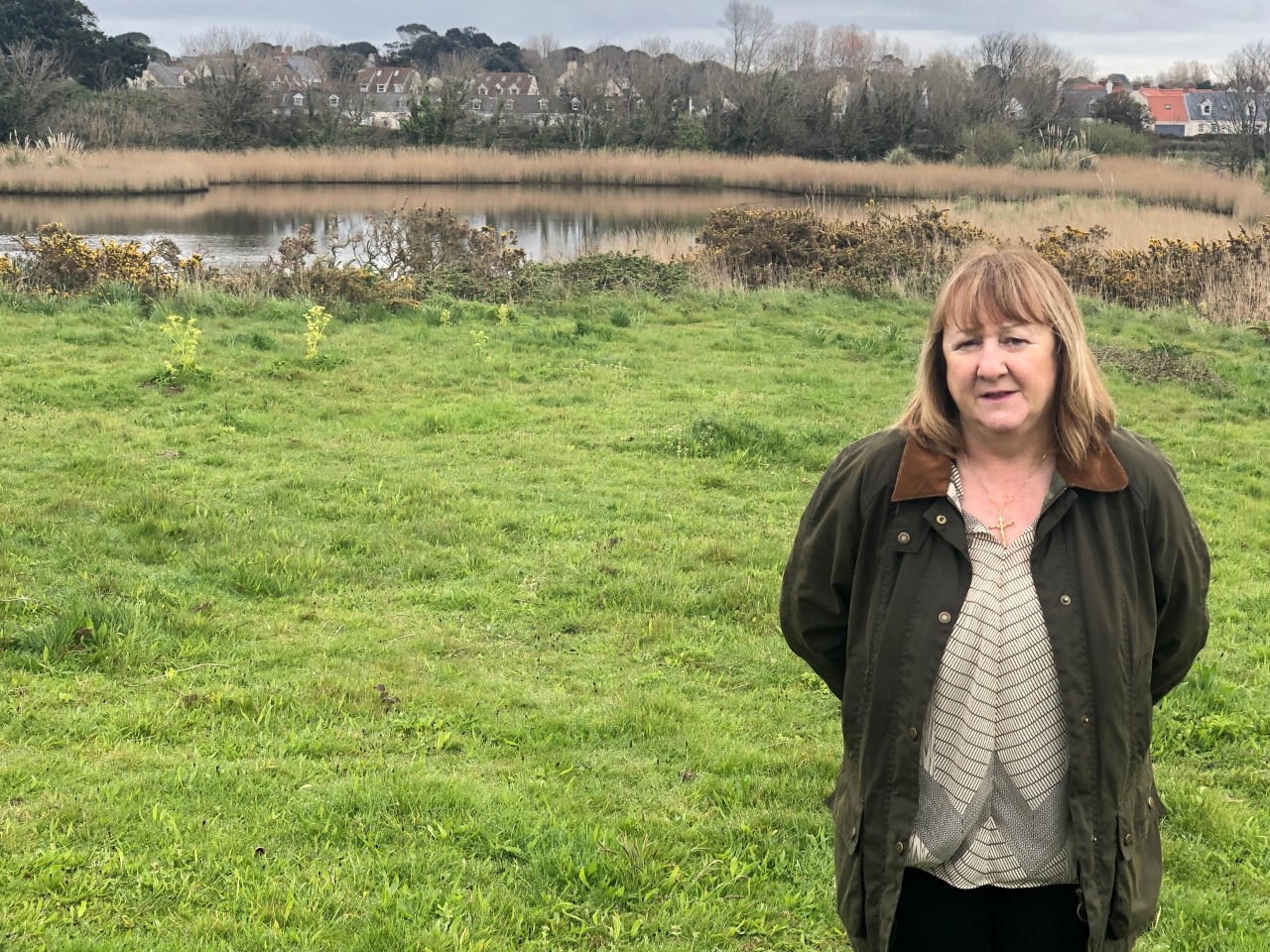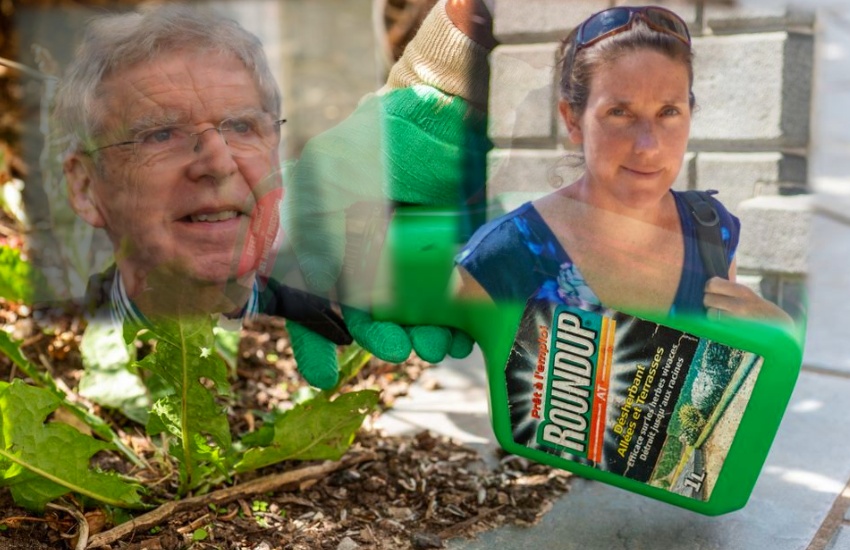


The States and the third sector are joining forces to audit the use of pesticides on public and private land as part of efforts to promote more environmentally-friendly alternatives.
The Committee for the Environment & Infrastructure is using the States' Strategy for Nature Fund to support the audit. Guernsey Water and the Pollinator Project are also involved.
The Committee said this collaborative process aimed to provide a picture of pesticide use by businesses and the public across the island.
The information gathered will help focus future efforts to reduce the use and impact of pesticides.

Pictured: The use of pesticides is damaging to pollinators, soil and the water supply. Contaminated water takes more effort and is more costly to treat.
Louise Gabriel, Co-director of the Pollinator Project, said the audit would support its campaign to reduce the use of pesticides.
"The data gathered through this audit will help us understand the relationship between pesticide use and pollinator populations," she said.
"We’re also educating people on the harm that pesticides do to our environment and encouraging natural alternatives to weed killers and bug sprays."
Julia Henney, the States' Biodiversity Officer, said that removing one pesticide is often quickly followed by the emergence of another equally harmful synthetic.
"The new approach being promoted, which aims to move away from using pesticides or, where they are necessary, promoting their appropriate use, is one which should see a more sustainable way of managing the island and much greater benefits for the island’s wildlife and community,” said Ms Henney.
In addition, it is hoped that a research project piloted in the Bailiwick by Dr Miranda Bane from Bristol University will continue to assess the impact of pesticides on local pollinator populations through a research grant from an external funding agency.

Pictured: Magaret McGuinness of Guernsey Water revealed earlier this year that hundreds of millions of litres of water have been made undrinkable because of pesticides seeping from the soil into the water supply.
Supply of clean drinking water is among the benefits of reducing use of pesticides.
Earlier this year, Guernsey Water raised concerns about the levels of pesticide in the Vale Pond and launched the ‘Don’t Spray: There’s a Better Way’ campaign to raise awareness of alternative ways to control weeds.
Margaret McGuinness, Water Quality Risk Manager at Guernsey Water, highlighted that alternatives such as the use of mulches, hand-pulling of weeds or applying eco-friendly approaches can have a noticeable impact.
"Something simple can help to get rid of most weeds and avoids the impacts of pesticides," she said.
"We hope that islanders can help reduce pesticides to avoid any potential need for investment in expensive water treatment technologies. That way, we can avoid it being a case of ‘spray now, pay later’."

Pictured: There could be another States' debate later this year on the use of glyphosate in weed killers, an issue over which Deputy Lindsay de Sausmarez and one of her predecessors, Deputy David De Lisle, have clashed.
In April, Express reported on a pledge by Deputy David De Lisle to take a proposal to the States to ban the use of glyphosate – a controversial herbicide present in a range of over-the-counter weed killers.
The previous States’ Assembly rejected a similar proposal two-and-a-half years ago. But Deputy De Lisle said he was preparing a second requête in the hope of capitalising on increasing concerns about environmental damage.
The President of the Committee for the Environment & Infrastructure, Deputy Lindsay de Sausmarez said at the time that she wanted to see a decline in the use of chemical pesticides, herbicides and fungicides.
But she warned that “a hasty ban on glyphosate” alone could “inadvertently cause an overall increase in the use of chemicals with different and potentially worse risk profiles”.
Deputy De Lisle is yet to submit his requête. Unless he submits it in the next week, it is unlikely to be debated by the States' Assembly until they meet in the autumn after their summer adjournment.
READ MORE...
Comments
Comments on this story express the views of the commentator only, not Bailiwick Publishing. We are unable to guarantee the accuracy of any of those comments.